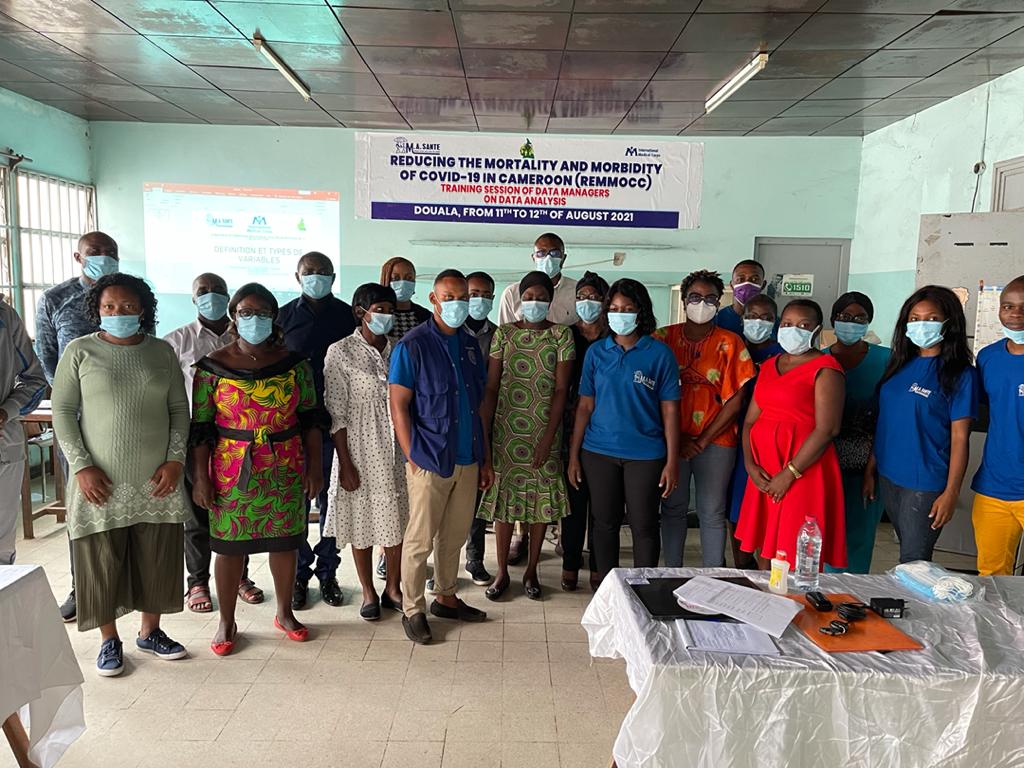Reducing the Morbidity and Mortality of Covid-19 in Cameroon (REMMOCC)
This project aims at reducing the morbidity of COVID-19 in Douala through early case detection (at community and health facility level) and sensitization to reduce exposure to a risk of contamination.
Funders: CDC (Center for Disease Control and Prevention) through the Global Health Security Agenda program, with the intermediary of IMC (International Medical Corps).
Partners:
- The Ministry of Public Health, Cameroon
- Littoral Regional Delegation of Public Health
- Bangue District Health Service
- Bonassama District Health Service
- Deido District Health Service
- Cite des Palmiers District Health Service
- Meilleur Accès aux Soins de Santé (M.A. SANTE)
Period: From January 1, 2021 to September 30, 2021

Team members: Project coordinator: Pr. Jérôme ATEUDJIEU ; Project supervisor: M. Trevor MBOH ANYAMBOD ;Assistant project supervisor: M. Yves Le grand NAPA TCHUEDJI ; Monitoring and Evaluation officer: M. NTSEKENDIO Paul NYIBIO ; Data Manager: M. Hervé TCHOKOMENI
Summary:
Cameroon is facing COVID-19 outbreak since March 6, 2020. In November 18, 2020, the 56th SitRep reported 23,528 confirmed cases, 435 deaths (CFR=1.8%), 169/190 (88.9%) districts affected and 916 active cases over the national territory. Littoral, including Douala, is one of the most affected and vulnerable regions of the country in terms of confirmed cases and deaths1,. It is known to carry the highest burden of health personnel (553 affected) and pregnant women affected (72 affected). Despite the interventions implemented by the Cameroon Ministry of health and partners, the spread of the disease continues.
REMMOCC project is implemented in Cameroon since January 2021 with the aim of reducing the mortality and morbidity of COVID 19 in Douala through health facility and community based activities. The projects’ activities target the most affected health districts of Douala in terms of COVID 19. In order to reach the objective, community health volunteers were trained to sensitize households on COVID 19 contamination and prevention, and to identify suspected cases in households. They implemented household sensitization and surveillance of suspected cases from March to September 2021. Case detection was also done in each health facility by dedicated focal points through registers’ review. Identified suspected cases were tested, linked to care and their contacts identified for potential positive cases detection. In the framework of the project, health facilities’ and health districts’ surveillance focal points and data managers were also trained on epidemiological surveillance and data analysis respectively.
Activities:
Conduction of a baseline situational analysis in the targeted health district ; Training of community volunteers and health facilities’ focal points ; Household sensitization activities ; Household surveillance (suspected case identification) and reporting ; Health facility-based surveillance (case detection and testing, investigation and contact tracing) ; Project end survey ; Preliminary results restitution to Littoral local health authorities
Publications:
- In progress

